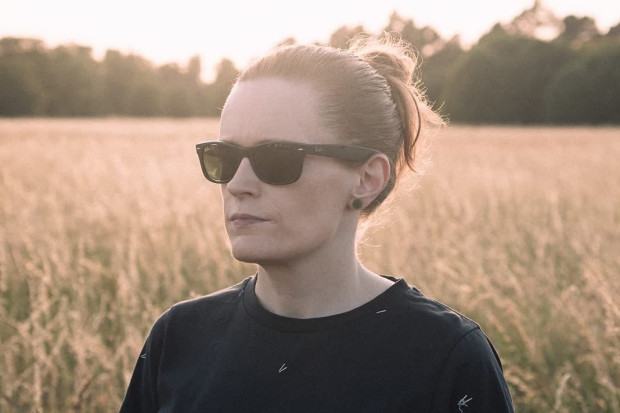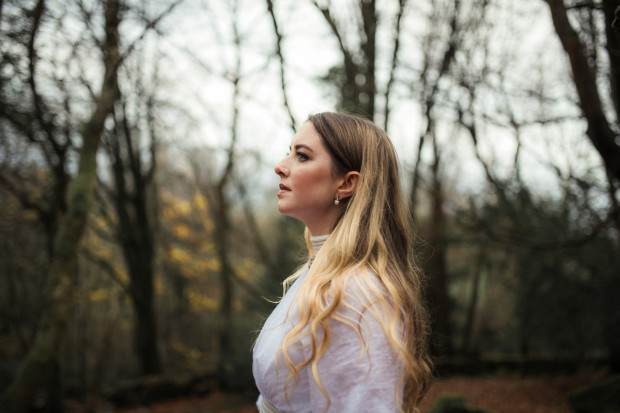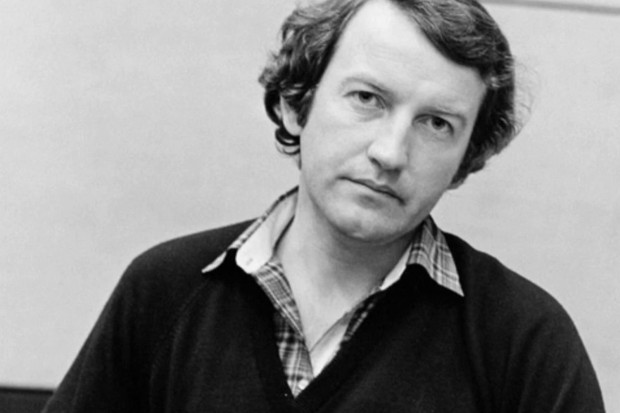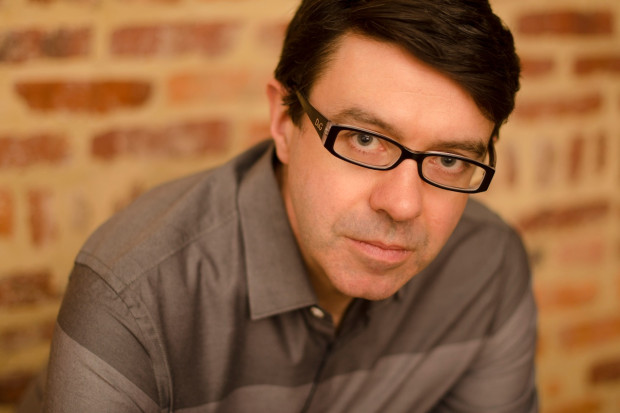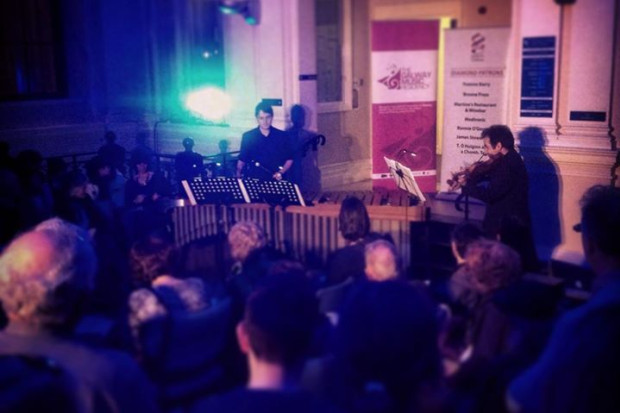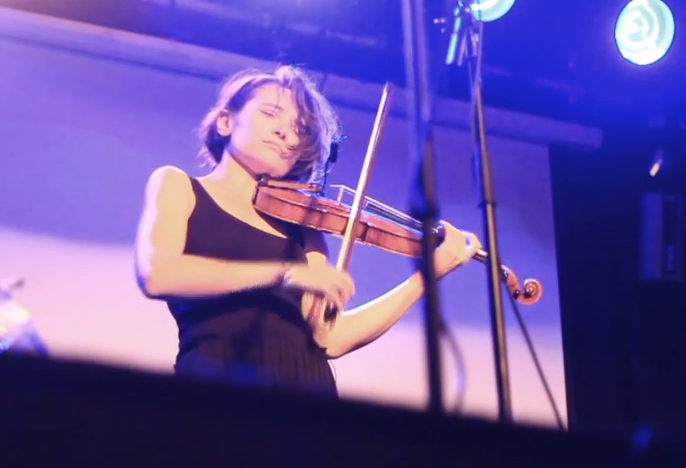
Cora Venus Lunny performs at the launch of Solo Series Phase II.
The Meeting of Known and Unknown
If the quartet of recordings issued as part of Dublin-based Diatribe Records’ Solo Series Phase II fall short of delivering on the project’s claim to offer ‘a wide-lens portrait of Ireland’s new musical terrain’, it’s largely because the focus of the four featured performers is elsewhere.
Where there are panoramic perspectives to be viewed within these individual recitals – by cellist Kate Ellis (Jump), violinist Cora Venus Lunny (Terminus (Conscientiae)) and fiddle players Adrian Hart (Cuisle) and Caoimhín Ó Raghallaigh (Music for an Elliptical Orbit) – they owe little to all-encompassing cinematic breadth and much, instead, to the grainer, grittier, occasionally glowing detail to be gleaned from the interior landscapes they describe and map.
With none of the recordings playing longer than 43 minutes, there’s an intense concentrated quality to performances that place acoustic voices against electronic accompaniments to variously push and pull the resulting dialogues towards expansive experimentation, or to confine and compress it into something altogether more atomised. Here is life mediated through a microscope rather than a magnifying glass and yet it seems somehow all the larger and more alive.
Co-founded as recently as 2007 by Matthew Jacobson and Nick Roth (who serves here as a sensitive, shrewd and sharp producer), Diatribe’s impulse to caress – as much as its willingness to collide – different musical vocabularies together has already produced a substantial catalogue.
Following on from the first set of Solo Series discs issued in 2010 that featured new electronic music by Irish, American and Japanese composers, this second instalment (each disc available separately or together in a box set) hones in exclusively on Ireland. While the thumbnail portraits that emerge illustrate the polymathic aesthetic that has informed and coloured contemporary Irish composition for some time, the focus here is on the role of the soloist as creator rather than mere intermediary.
There is interest, too, in hearing how Lunny’s classical experience and the traditional background of Ó Raghallaigh respond to an electronic accompaniment that serves as collaborator, commentator and interrogator with varying degrees of amenability, subtlety and severity.
Something in the sub-surface warp and weft of electronic music – the always surprisingly interplay of performer and machine; the sense, despite the pre-designed structural scaffolding, of spontaneous digressions and unexpected departures into unchartered emotional topography – seems to lend itself to unguarded, subcutaneous involvement on a musician’s part.
‘Composing with living sounds,’ is how Edgard Varèse defined working with electronic music, adding that he thought ‘of musical space as open rather than bounded’. Solo Series Phase II offers four startling and darkly seductive testimonies to that notion. They also occupy interior and exterior positions that point to electronic music’s capacity for occupying ground closer to (and further away from) the centre of things and the remit of programmers and concert venues than is currently allowed to it.
Crash Ensemble artistic director Kate Ellis’ Jump is the only disc to feature multiple composers, and, ostensibly, the widest ranging. If Niall Vallely’s lilting and lively Sondas is a bewitching pas de deux between baritonal cello harmonies and a piquant electronic pointillism, Enda Bates’ Antiphony reveals it in palpitating agitation, an excoriating eight-minute descent into distortion that marries the concrete-hard directness of industrial music pioneers Throbbing Gristle with the chamber-like introspection of The Sinking of the Titanic-era Gavin Bryars.
Linda Buckley’s title track – lachrymose and luminous in equal measure – pares things back to barer, sparser cello textures lit by glowing, otherworldly electronics across a 12-minute canvas. Most immediate of all, is the ethereal arrangement of Aisling Gheal, Ellis’s cello lyrically bittersweet, Donnacha Dennehy’s mahogany-dark-grained electronics warm and cosseting.
Fiddler Caoimhín Ó Raghallaigh ventures into markedly different territory with Music for an Elliptical Orbit. Eight self-penned pieces – none of them much longer than six minutes – set the tenebrous, miscegenated timbres of a Hardanger d’Amore fiddle – a 10-string instrument ‘somewhere between a [Norwegian] Hardanger fiddle and a viola d’amore’ made for Ó Raghallaigh by luthier Salve Håkedal – against coruscated electronic washes of tidal complexity. It’s a decidedly crepuscular experience, flecks of eerily beautiful light sparking and darting through the gelatinous murk. Especially fascinating is hearing Ó Raghallaigh (a member of The Gloaming and This Is How We Fly) weaving ideas and attitudes from traditional music into a stringent electronic soundscape, manifestly so in the brittle, filigree-delicate arrangement of the pensive air ‘Easter Snow’.
There’s an almost Cagean minimalism to the meditative tentativeness of ‘Lithosphere’, bursts of luxurious harmonies in ‘Run’ that are all the more rewarding for being so unexpected, and a gripping sense of Ó Raghallaigh reaching towards a primordial, still-forming phonology for his hybrid instrument against liquescent electronic atmospheres in ‘Big Mammoth’ and ‘Little Mammoth’.
From a similar background blending old and new, Coral Venus Lunny pushes against the boundaries of both on Terminus (Conscientiae). A wholly improvised response – or, as Lunny has it, ‘spontaneously composed… with no musical plan’ – to Bartók’s Sonata for Solo Violin (commissioned by Yehudi Menuhin in 1943), it’s as much an exercise in textures and transposition as it is a display of safety net-free high-wire virtuosity in which violin and electronics duel and dance around Bartok’s constantly formed and re-formed original.
Cast in four movements (the substantial, 19-minute first, ‘The Meeting of Known and Unknown’, in four sections), it bites deeply into the flesh of its source material to arrive in a sub-atomic realm in which details are thrown into relief against a chiaroscuro background that variously flares into intoxicated, stratospherically sweet and heady reveries in ‘Movement 2: Jnana (Fermentation)’ and sinks into the rasping darkness and slicing menace of extreme electronic distortion in ‘Birth of the Phoenix (Distillation)’, at 12 minutes, the largest piece here.
Like Ó Raghallaigh, Lunny’s provocatively unorthodox, pointedly athletic bowing techniques interrogate the material, the capabilities of her instrument and the relationship between acoustic and electronic sound with determined intent, sawing its way through surface resistance and soaring high above with revealing cartographic insight.
By contrast, Royal Irish Academy of Music and Purcell School of Music graduate Adrian Hart’s Cuisle (which translates as ‘pulse’) seems unabashedly more vivacious, a sometimes simultaneous headlong rush towards far-removed musical frontiers.
Tellingly, Hart’s own contribution on violin employs techniques more usually found in traditional music. Conspicuously so, in the 16-minute-long ‘Cuisle ’is tonnta’ (‘Pulse and Waves’), a hugely contrasted five-part suite with all the affectations of a concerto.
The traditional elements aren’t exclusively Irish, Hart also drawing on oud-like sonorities from the Middle East in the big-boned and sinewy ‘A.O.S.’; a dancing Appalachian twang for the frenetic hoedown-cum-cèilidh of ‘Sally Gooden’; and gavotte-like daintiness for ‘Sally Coming Through the Rye’. The hyperventilated ‘Cretan Set’ borrows from the Maleviziotis and Sousta dance forms of the Mediterranean with an amphetamine-driven urgency that exhausts itself before disintegrating and evaporating into wispy nothingness.
Taken together, Solo Series Phase II offers eloquent testimony to a new dialogue and dialectic emerging in the ready willingness of soloists rooted in other traditions to experiment with musical idioms that conventional wisdom has hitherto rendered off limits to them.
Cora Venus Lunny performs at the launch of Solo Series Phase II (The Sugar Club, Dublin, August 2014).
Published on 1 April 2015
Michael Quinn is a freelance music and theatre journalist based in Co. Down.













